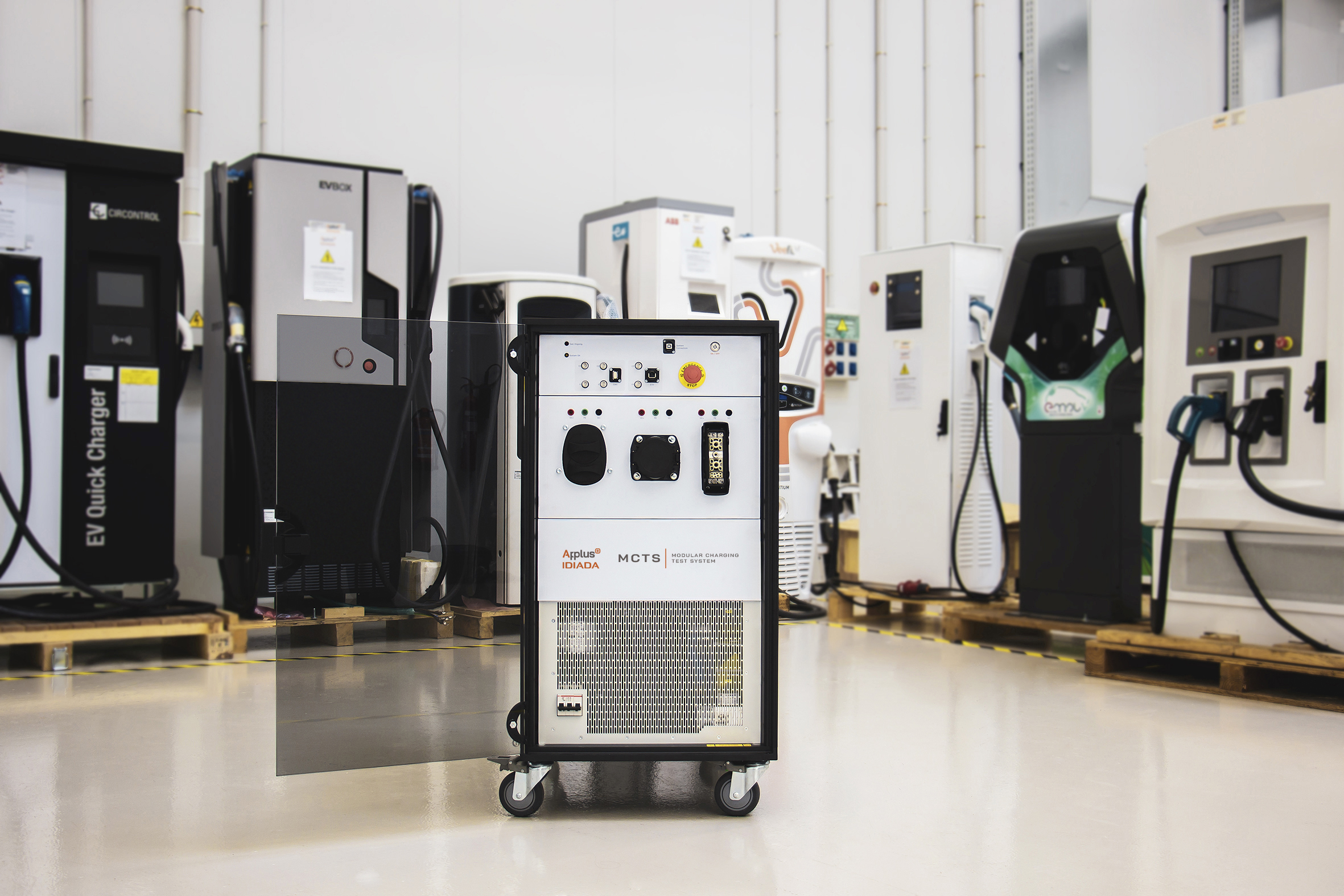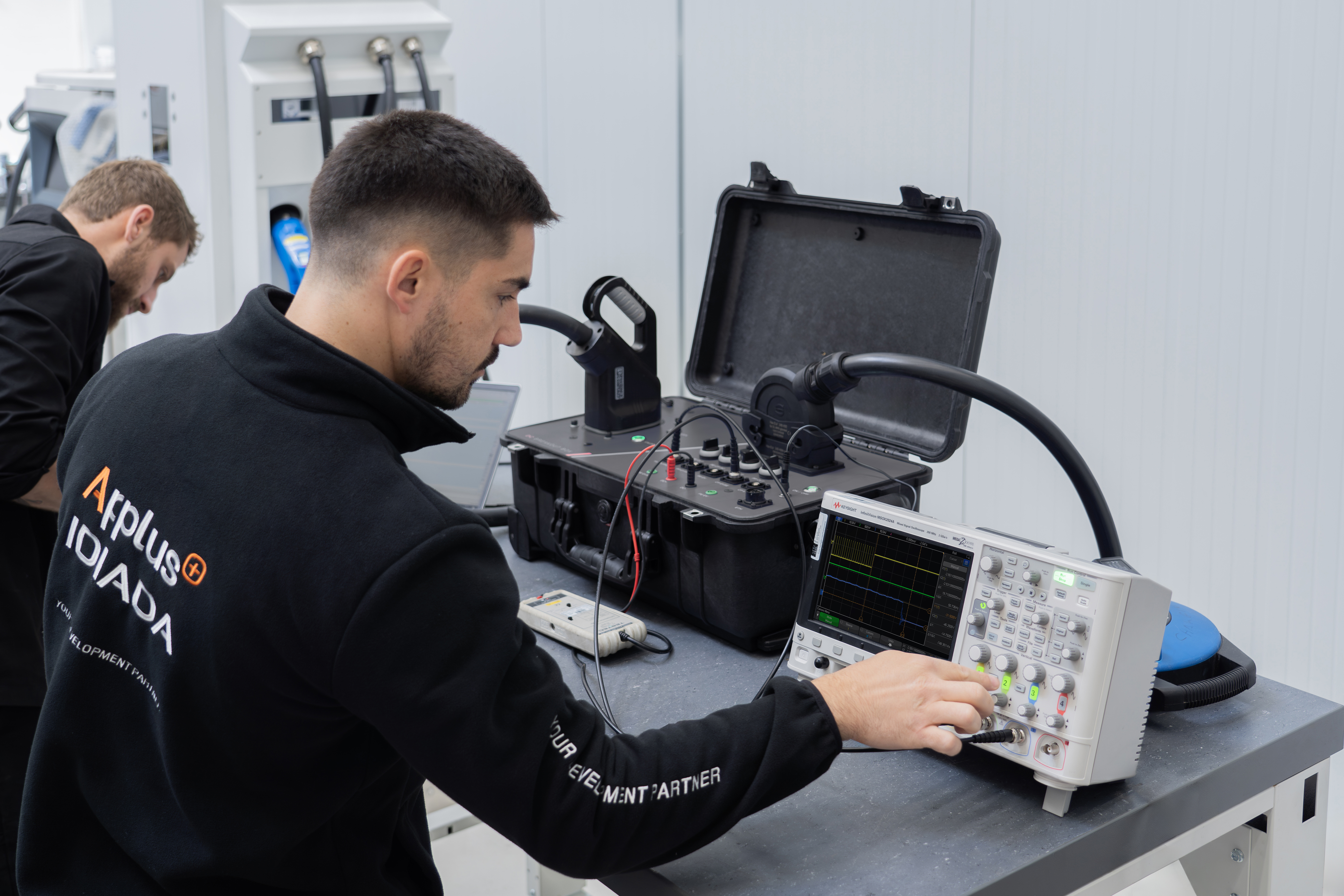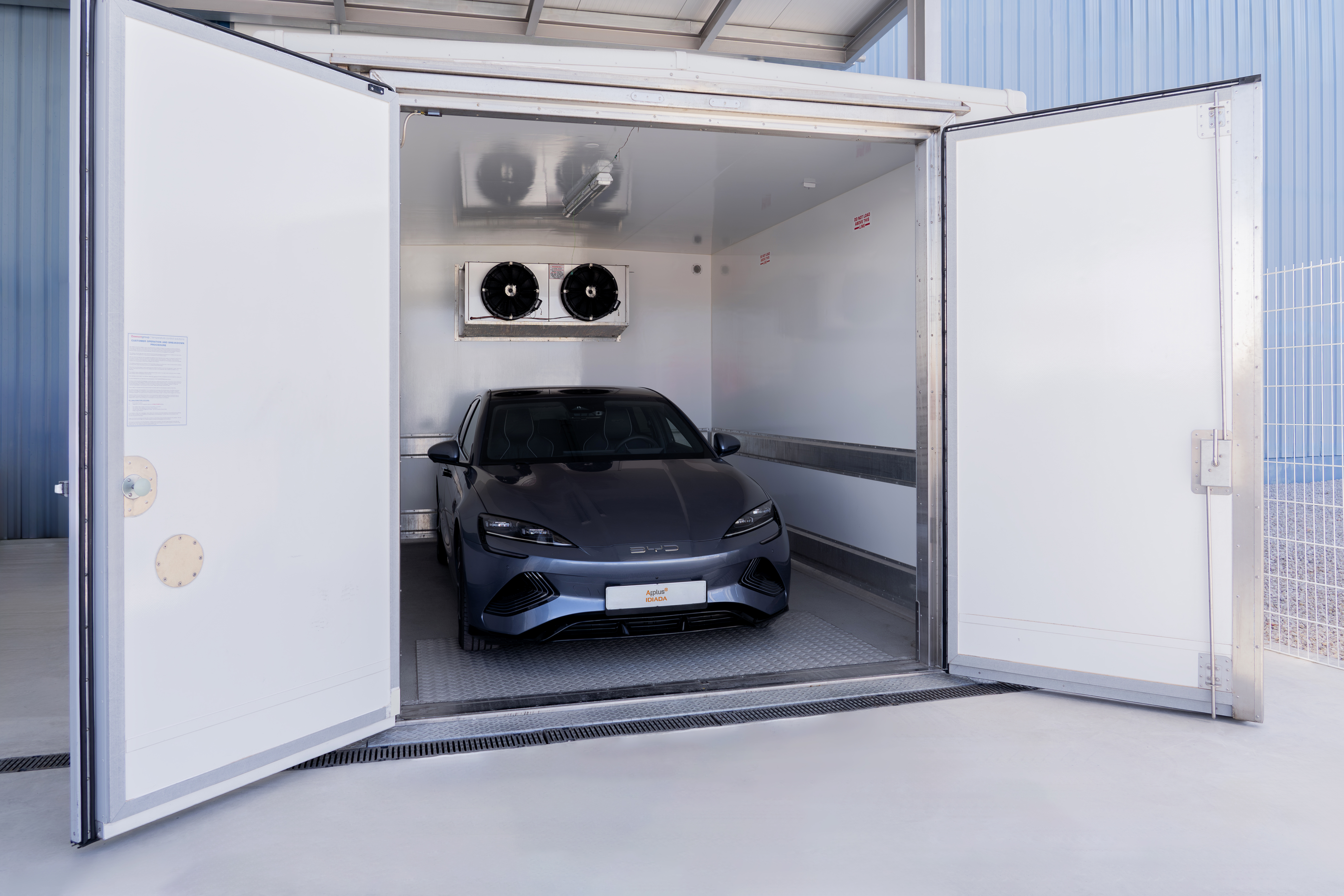Powering the Future of Electric Mobility: IDIADA's Comprehensive Approach to EV Charging System's Development and Testing
With the current transition towards sustainable transportation, the development and testing of electric vehicle (EV) charging systems have become increasingly crucial. To be at the forefront of this revolution, manufacturers of light- and heavy-duty EVs, charging station providers, and Tier 1 suppliers need to provide charging solutions that are efficient, fast, and reliable.
Applus+ IDIADA has been part of the driving force in EV Charging Innovation. As a global leader in automotive engineering and testing, we are at the forefront of the EV revolution thanks to our comprehensive suite of services to the automotive industry and suppliers.
Our state-of-the-art testing facilities have played a pivotal role in advancing the development and deployment of cutting-edge EV charging solutions. These dedicated testing and validation capabilities have been instrumental in empowering manufacturers to deliver innovative, reliable, and user-friendly charging systems to the market.
Expertise in Electric Vehicle Charging System Development and Testing
Our expertise and global reach make us the ideal partner for manufacturers and suppliers navigating the complex and rapidly evolving EV charging landscape. Our commitment to innovation, combined with our deep understanding of legal and consumer requirements, ensures that our clients receive customized, added-value solutions.
With over 12 years' experience supporting EV and Electric Vehicle Supply Equipment (EVSE) developments, IDIADA provides worldwide comprehensive solutions for prototype development and charging test activities.
Our team is composed of over 40 charging experts, located in Spain, Germany, the USA, and China, who work tirelessly to ensure the conformance with the latest charging standards as well as the interoperability between EV and charging stations interfaces (EVSE).
Our approach is to accompany our clients throughout the whole product development cycle, covering Charging Specifications Definition, Development and Design Validation Plan, Conformance Testing at component and vehicle level, Market Study and In-lab and In-field Interoperability testing.
Charging Specifications Definition: Regulation Compliance & Consultancy
Applus+ IDIADA is a member of the CHAdeMO steering committee as well as of CharIN, supporting the development and guidelines of CCS Certification for EV and EVSE. We are also an ISO 17025-accredited laboratory for IEC 61851-1 (Requirements for conductive EV charging systems), IEC 61851-23 (DC EV charging systems), and IEC 61851-24 (Digital communications for EV charging systems).
In addition, we are providing CHAdeMO 0.9-2.1 certification following the association guidelines as well as V2H (CHAdeMO) certification for bi-directional charging stations. Soon, the CharIN official test procedure for CCS basic and extended certification will also be available.
IDIADA offers on-site and remote trainings for all charging standards worldwide, Design Validation Plan (DVP) covering the complete charging system for EV and EVSE, as well as Requirements Definition for Charging Processes and HV architectures and Use Case Scenarios definition, including user experience, smart charging, and misuse.
Development Support
Our charging specialists provide prototyping support for upcoming concepts such as AC High Level Communication (HLC), Open Charge Point Control (OCPP), ChaoJi, ISO15118-20 and Plug & Charge (PnC). Furthermore, we conduct charging reliability and durability testing, regulation compliance and certification, and testing activities modifying CAN BUS signals, low voltage signals and safety tests to ensure the correct application of the standards and compatibility between EV OEMs and charging stations manufacturers.
Conformance Testing at Component and Vehicle Levels
We have developed an in-house a Modular Charging Test System (MCTS), capable of working as an EV and as an EVSE with +800 test cases covering the different worldwide charging standards.

The MCTS supports any charging standard, including CCS1/CCS2, NACS, AC Mode 3, CHAdeMO, GB/T, and OppCharge. It is modular and customizable and has EV and EVSE emulation capabilities, pre-defined regulatory test cases for ease of use and validation, and can be used for EVSE, vehicle, or component level testing (inlets, OBC, charging ECU, etc.).
Furthermore, the MCTS also supports charging tests for DC and AC, including induction of failures, misuse tests, emergency shutdowns' management, communication validation, and power operation validation up to 500kW DC. It offers AC grid emulation as well, with multiple grid conditions, such as harmonic disturbances and 50/60Hz for OBC grid testing.
Market Study
Applus+ IDIADA conducts in-depth analysis of the AC and DC public charging stations installed, identifying the brand, model, and provider/network of each station. By accessing IDIADA's Market Study Desktop APP, users can filter information by country, region, standard, and electrical parameters.
The application can be periodically updated offering a clear picture of the evolution of the market share, a charging stations' catalogue, and further customizable filters. The platform enables automakers to generate relevant information and make confident decisions throughout the charging validation process, helping in defining testing strategies and targets for posterior in-lab and in-field interoperability testing activities.
Interoperability Testing (In-lab)
Applus+ IDIADA offers full testing against most representative charging stations (EVSE), debugging and reporting to manufacturers. We have more than 100 test cases for DC protocols, user abusive testing and error performance, updates to improve interoperability, and specific tools for non-invasive communication analysis.

For heavy-duty applications, IDIADA has established a dedicated Charging Laboratory, equipped to handle the unique requirements of electric buses and trucks. This facility includes the Megawatt Charging System (MCS) testing tool, developed specifically for e-Trucks.
The laboratory offers an extended test plan similar to the one of light-duty vehicles, including conformance tests with Heavy-Duty tester and Interoperability with Pantograph (Panto-up and Panto-down), as well as our wide range of CCS chargers.
Interoperability Testing (In-field)
Our EV charging service can include worldwide in-field testing to validate final user's experience and specific chargers with, for example, lower market share. We are an independent entity for leading interoperability issues, with deep expertise in testing on-site in Europe, China, Japan, the USA, India, South-East Asia, LATAM, etc. and working always in collaboration with OEMs and Charger suppliers. Our in-field testing services include route planning (following results of market studies) and tests performed by our highly experienced Charging Engineers with extended problem-solving and in-field analysis skills.
High-Power Charging Performance Testing
Our MCTS is also capable of high-power charging up to 500 kW. We can offer charging performance tests at maximum power for EV and EVSE, providing a clear image of the charging profile and the energy balance strategies.
Additionally, our climatic chamber –with a range of -30℃ to +50℃– allows us to conduct charging performance tests under specific temperature conditions, simulating possible real scenarios and forcing some electronic components to work under stress.

A Trusted Partner in the EV Charging Landscape
As the world accelerates its transition to electric mobility, Applus+ IDIADA's role as a trusted partner in the EV and EVSE development and testing has exponentially increased.
Our wide experience, our membership in key industry bodies, as well as our end-to-end approach capabilities from defining charging specifications to conducting interoperability testing programmes in-lab and in-field, have provided us with a deep understanding of the needs the electric mobility industry has on the charging system side.
IDIADA's investment in specialized facilities together with our advanced testing capabilities and know-how, allow us to provide the necessary tailored solutions for the different vehicle segments present in the mobility industry.